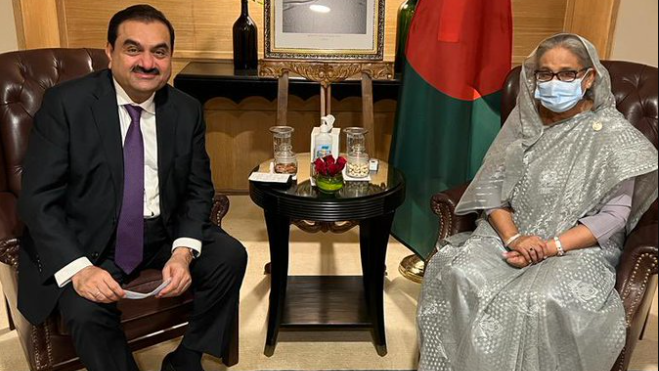
Bangladesh’s Political Crisis and Its Effects on Indian Businesses and Market Stability

The recent political crisis in Bangladesh, marked by violent protests and the ousting of Prime Minister Sheikh Hasina, has raised significant concerns for Indian businesses operating in the region. Since Sheikh Hasina took office in 2009, Bangladesh has been a crucial ally for India, and her departure poses risks to trade and economic stability.
Effects on Indian Companies
The turmoil in Bangladesh has already affected several Indian companies with significant operations or market presence in the country. The impact is evident in the stock market, as shares of Indian firms with ties to Bangladesh have faced declines:
- Marico: Known for its Saffola edible oil, Marico’s stock dropped by over 4%. Bangladesh contributes about 11-12% of the company’s revenue, and the ongoing crisis could disrupt its sales there.
- Pearl Global Industries: With roughly 25% of its revenue coming from Bangladesh, Pearl Global saw its shares decline by over 3%. Its facilities in Bangladesh are temporarily non-operational due to the imposed curfew.
- Emami: Shares of Emami fell by over 4%. The company, which has a significant presence in Bangladesh, is facing potential disruptions in its operations.
Other Indian companies feeling the strain include Bayer Corp, GCPL, Britannia, Vikas Lifecare, Dabur, Asian Paints, Pidilite, Jubilant Foodworks, and Bajaj Auto. The unrest is particularly concerning for companies like Trent, PDS, and VIP Industries, which rely on Bangladesh as part of their supply chain.
Textile and Garment Sector
The crisis has brought mixed outcomes for India’s textile and garment manufacturers. Bangladesh is a major market for yarn exports, accounting for 25-30% of total exports. While the situation might affect yarn exporters, the impact is not yet severe. Neeraj Jain, Joint Managing Director of Vardhman Textiles, noted that the current disruption is minor but could become a concern if it persists.
On the other hand, the crisis presents opportunities for Indian textile and garment manufacturers to increase their market share. Shares of companies such as Gokaldas Exports, KPR Mill, Arvind Ltd, SP Apparels, Century Enka, Kitex Garments, and Nahar Spinning have surged, reflecting a positive market shift.
Adani Power
The situation has also raised questions about the power supply agreement between Adani Power Limited and Bangladesh. Under a power purchase agreement (PPA) signed in 2017, Adani Power is committed to supplying 1,496 MW of power to Bangladesh for 25 years. This project, operational since June 2023, is crucial for Bangladesh’s power supply.
There have been past concerns over the pricing of coal supplied by Adani Power. With the political changes, there might be discussions on revising the agreement. However, experts believe that any drastic decision could impact investor sentiment, as Bangladesh urgently needs power. Adani Power continues to supply electricity to Bangladesh according to the PPA, highlighting that the power supplied from its Godda Power Plant is beneficial in replacing costly liquid fuel-based power.
Future Outlook
Analysts suggest that the future impact on stocks tied to Bangladesh will depend on the duration and resolution of the unrest. Market expert Hemang Jani indicated that if there is a significant correction in companies like VIP or Marico, it might present a buying opportunity.
Conclusion
The political crisis in Bangladesh has significant implications for Indian businesses, particularly those with substantial operations or market presence in the country. The ongoing situation underscores the importance of closely monitoring political developments and their potential impact on trade and economic stability in the region.
Never miss any important news. Subscribe to our newsletter.
Related News


USD/INR Slows Down Amid Mixed Indian PMI Data.


USD/INR Rises as Markets Anticipate Fed Rate Decision.


Gold Price Nears Record High Amid Strong Safe-Haven Demand.



USD/INR Gains Momentum Amid Trade Tariff Uncertainty.



Never miss any important news. Subscribe to our newsletter.
Editor's Pick


USD/INR Slows Down Amid Mixed Indian PMI Data.


USD/INR Rises as Markets Anticipate Fed Rate Decision.



